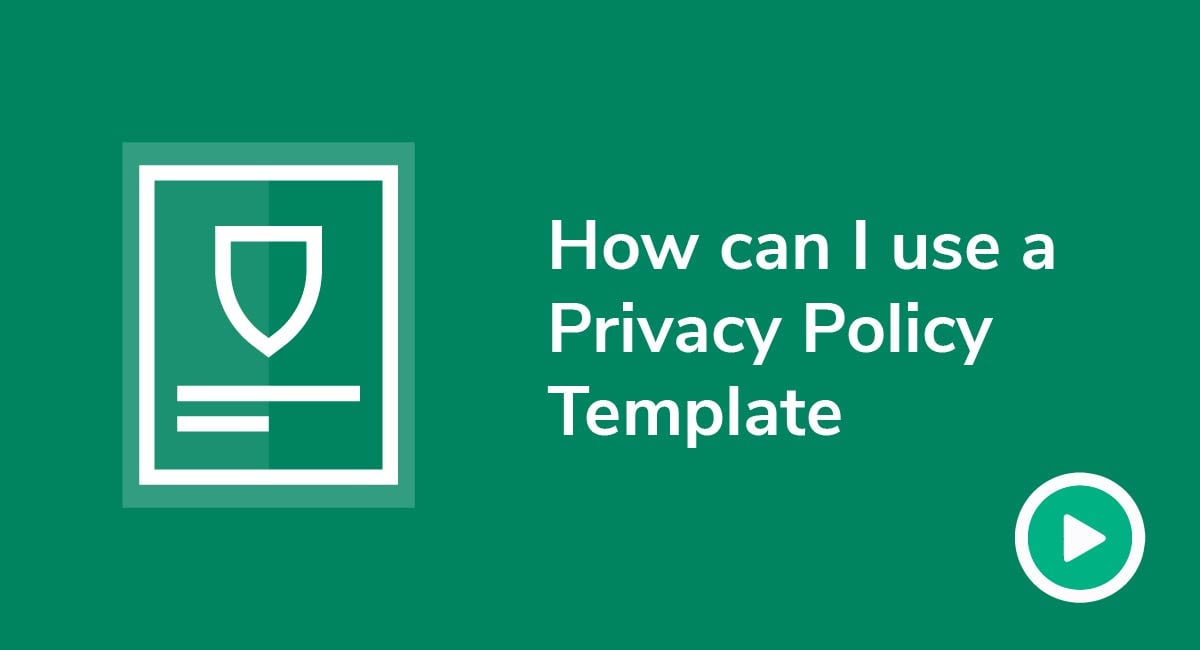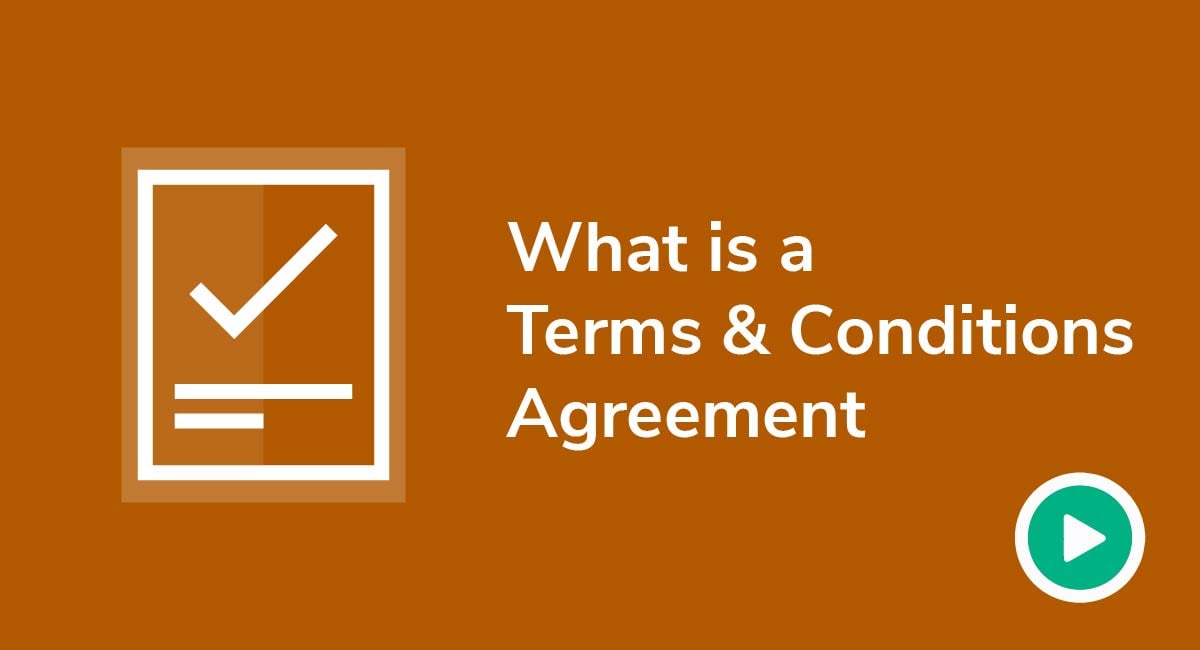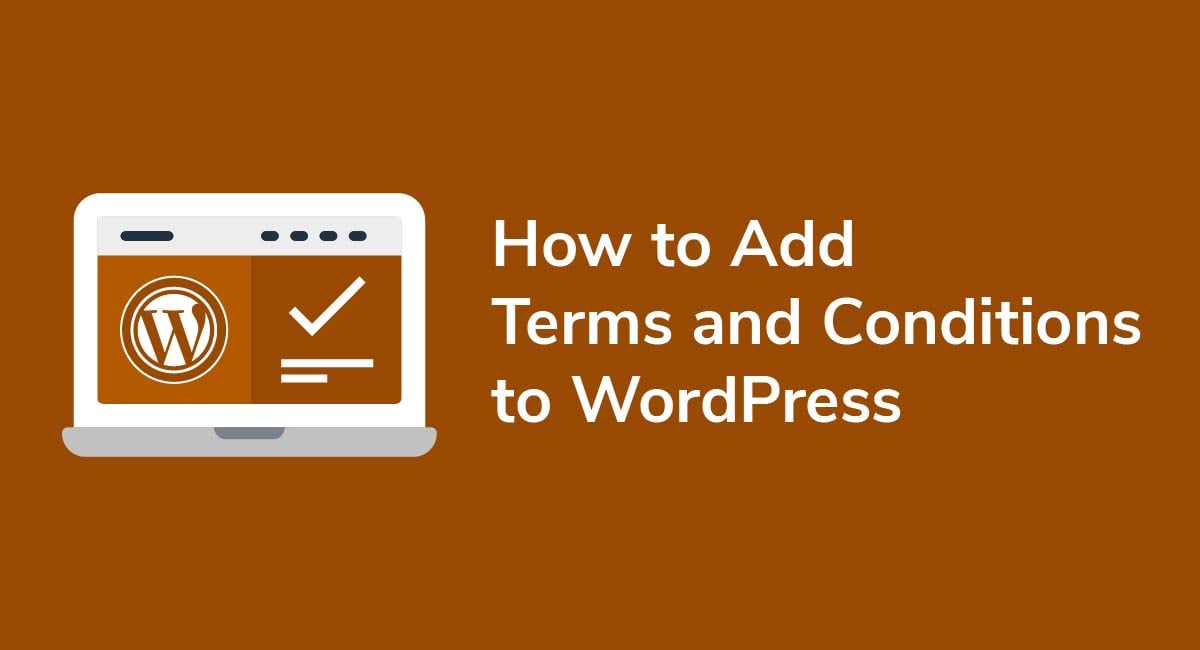Video: Who Needs a Privacy Policy?
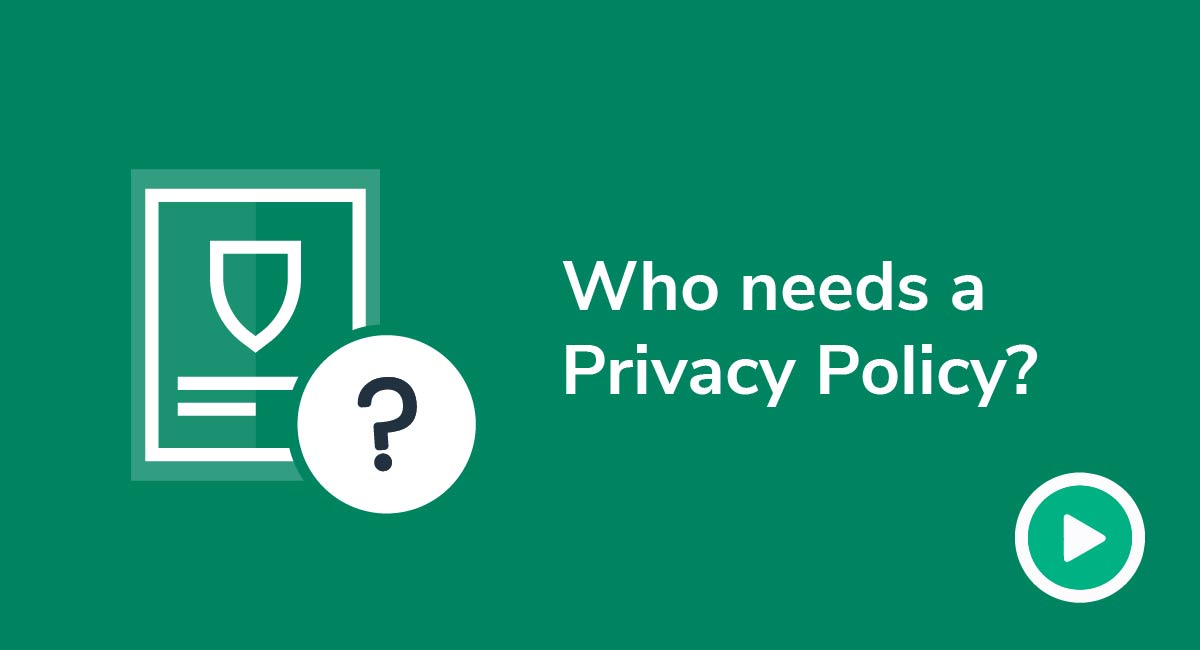
If you've been asking yourself, "Does my website need a Privacy Policy?" What about my blog, facebook page, or business page? or "Who needs a Privacy Policy?"
Well, you've come to the right place.
The answer to these questions is that any website that collects personal information from its users needs a Privacy Policy.
In today's video, we'll be answering your questions about what General Data Protection Regulations are, what is considered personal information, who needs Privacy Policies, and more.
So if you're interested in learning more, then stick around.
Hey everyone, it's Heleana here, and welcome to PrivacyPolicies, the place where you can generate custom-made Privacy Policies in seconds to help keep your business safe.
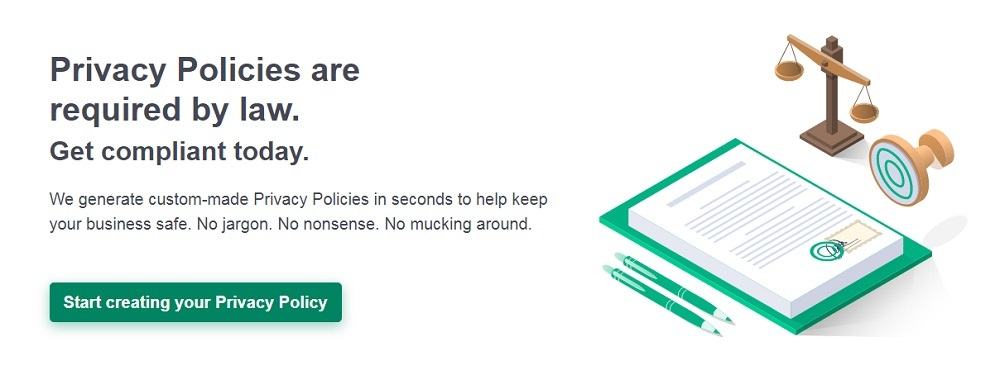
So, let's get straight into it.
Who Needs a Privacy Policy?
The answer to this is simple:
Any website that collects personal information from its users needs a Privacy Policy.
But what is considered personal information, exactly?
Well, personal information can be something as obvious as a person's name and email address. But it can also be less obvious information, such as the user's IP address.
For a long time, companies were taking our personal information and data and using it without our consent. But now there is something in place called GDPR that is there to protect us.
So, What is GDPR?
The GDPR's primary aim is to give individuals control over their personal data and to simplify the regulatory environment for international business by unifying the regulation within the EU.
Though it was drafted and passed by the European Union (EU), it imposes obligations onto organizations anywhere, so long as they target or collect data related to people in the EU.
This regulation was put into effect on May 25, 2018. The GDPR will levy harsh fines against those who violate its privacy and security standards, with penalties reaching into the tens of millions of euros.
Almost everyone knows that Europe has much stricter standards when it comes to privacy laws. In fact, Europe's General Data Protection Regulation (GDPR) became a law back in 2016 all over the EEA, and has affected businesses around the world.
In the USA
As for the USA, the state of California has the strictest data privacy laws in North America, and now, it is set to become even more strict with a new law called the California Privacy Rights Act (CPRA). This law is designed to update and expand California's Consumer Privacy Act (CCPA).
So taking into consideration everything I just mentioned, it's vital to remember that if your website asks for information of any kind from users, you should ensure that a Privacy Policy is in place.
So, now that we touched a bit on who needs a Privacy Policy, let's talk about some specifics regarding Privacy Policies.
Privacy Specifics
Firstly, consider the fact that every website interacts with a person's data in one way or another.
In other words, whatever you use your website for, you should make sure that your site has a Privacy Policy. Remember that even if you're not actively collecting data on users, many of the new laws on data privacy have a "right to know" clause.
This means the user has the right to know whether you're collecting data or not. If you're not, that's totally fine, but the user must have a way to learn that information. A Privacy Policy with a small, clear statement that you don't collect information at all would work in such a situation.
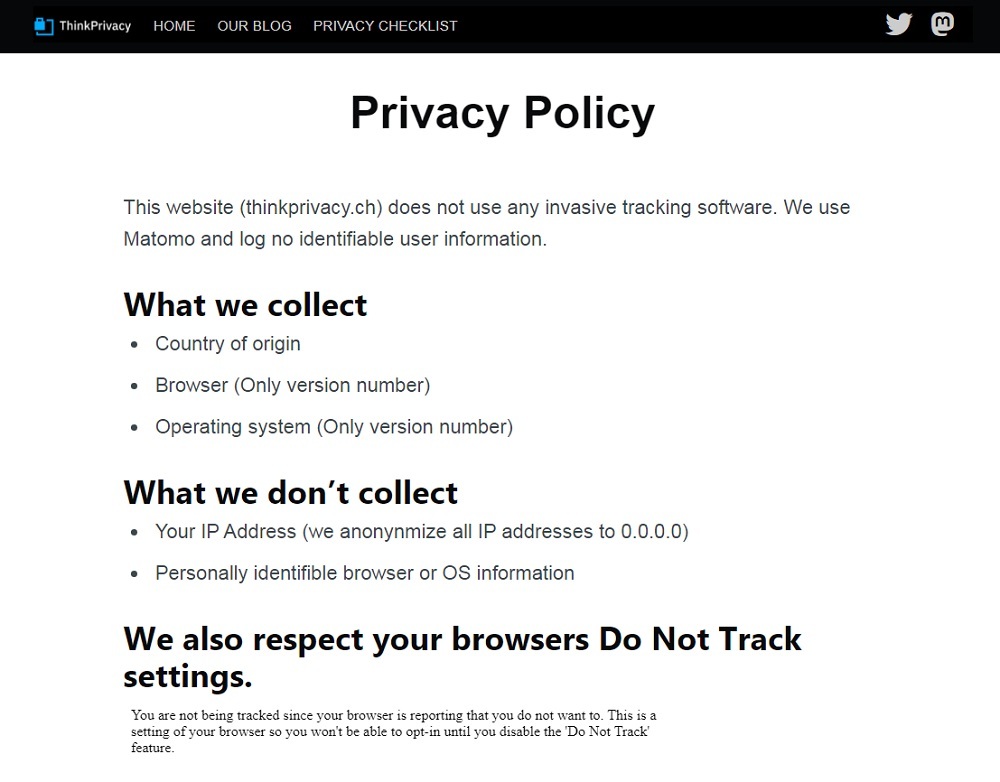
Under most privacy data laws, particularly for those doing business in the EEA or in the State of California (which by the way, your business doesn't have to be located in those locations, you simply have to be doing business there), anyone using your site must be informed about their rights when it comes to their personal information.
You have to let users know how their data is collected, how it is used, how their information is stored, and how it is protected.
Failure to do so can lead to incredibly steep fines and other penalties.
All of that information is normally contained in a website's Privacy Policy.
Finally, your website needs a Privacy Policy even if no specific law requires you to have it, because many companies require you to have a Privacy Policy if you wish to use their services, such as Google Analytics or AdSense for example.
Does My Blog Need a Privacy Policy?
Consider the fact that the user's browser is collecting information that they visited your blog. Your blog itself, depending on the platform, may record the fact that a user dropped by. The IP address might be recorded. Cookies might be placed onto the user's computer.
Additionally, suppose you use social sharing tools to share your content on social platforms like Twitter, Facebook, Instagram, or Snapchat.
![]()
In that case, the blog platform gets a hold of the user's private data through its integration with those platforms.
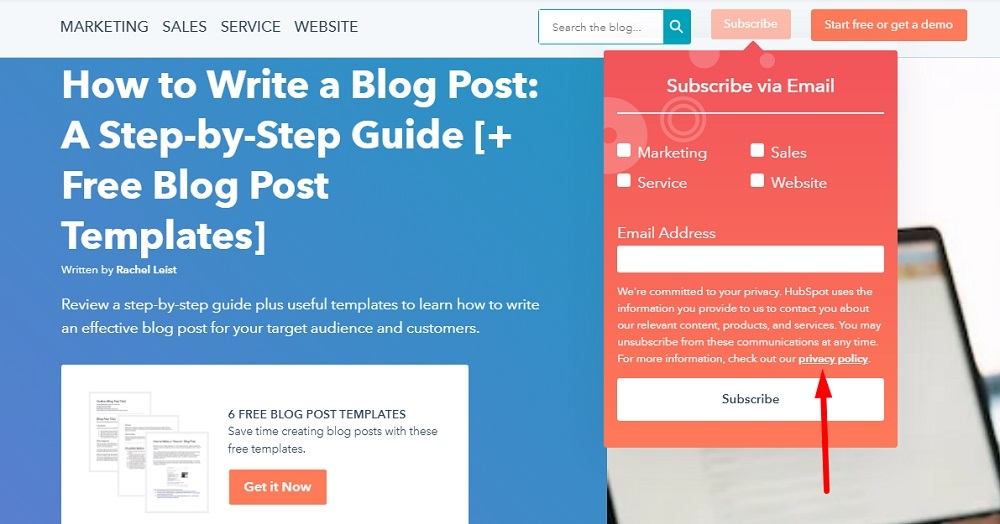
Note that the form has a place where the user can click to read the blog's Privacy Policy.
It doesn't matter if your blog is personal with no ties to business. If you're interacting in any way with users or blog readers, whether that's social sharing, a chat application, getting your users to comment, or just allowing them to read your thoughts, you need a Privacy Policy for your blog.
Does My Facebook Page Need a Privacy Policy?
If you operate a Facebook Page within the European Economic Area (EEA), you'll need a Privacy Policy.
This is a requirement of Facebook's Page Insights Controller Addendum, which defines the relationship between Facebook and the Page operators.
You'll need to include some specific information in your Privacy Policy, and link the policy to your Facebook Page, which Facebook makes quite easy to do.
When you log in to your business page, you can go to your About section and scroll down:

That's where you'll see an option to "Edit privacy policy."

Do All Businesses Need a Privacy Policy?
If you've been paying attention up to this point, then you probably know the answer already.
If you've got a website, a blog, or a business page on a social media platform and you interact with users in any way, shape, or form, you definitely need a Privacy Policy.
If you need to make a privacy policy, we've got you covered. Just go to our website PrivacyPolicies.com and use our Privacy Policy Generator, fill out your website's information and you'll have your Privacy Policy ready within minutes.
Need a Privacy Policy? Our Privacy Policy Generator will help you create a custom policy that you can use on your website and mobile app. Just follow these few easy steps:
- Click on "Start creating your Privacy Policy" on our website.
- Select the platforms where your Privacy Policy will be used and go to the next step.
- Add information about your business: your website and/or app.
- Select the country:
- Answer the questions from our wizard relating to what type of information you collect from your users.
-
Enter your email address where you'd like your Privacy Policy sent and click "Generate".

And you're done! Now you can copy or link to your hosted Privacy Policy.




We hope that you found this video on GDPR and Privacy Policies helpful and informative.
If you have any more questions related to this topic that we didn't happen to touch on, please leave them in the comments below and we'll get back to you as soon as we can.
You can also visit our website PrivacyPolicies.com to get all your legal advice in one place.
Thanks for watching, don't forget to like and subscribe, and we will see you in our next video.
Bye, guys!
